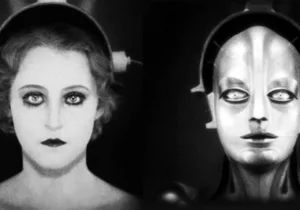For the last several years liberalism has seemed at risk of being added to the endangered ideologies list, perhaps soon joining the ranks of such downtrodden world views as feudalism and classical republicanism. To many, this turn of events has proved shocking. After all, the collapse of the Soviet Union just a few years ago was seen by many as the great triumph of liberal ideas. The reasons for this sudden and lamentable reversal of fortunes are complex. Still, any explanation must include an account of social liberalism’s evolution from a moral vision to a libertarian account of the state. A transformation that has degenerated liberalism into a limping corpse of a movement and must be reversed if we are to effectively fend off the post-liberal vultures circling above.
The average social liberal today takes a simple view of most non-economic issues: anyone can do whatever they wish, as long as it hurts no one else. This view of things is fine as a legal perspective. In fact, the idea that law should not foist certain moral notions upon the populace is key to all forms of liberalism. However, it should be frankly admitted that such legal limits are unlikely to motivate many voters, nor is it likely to encourage social acceptance of those who share different characteristics than ourselves. In short, social liberalism must also be a moral view, but that is exactly where the modern definition falls flat. The idea that humans can believe or do whatever they wish if it harms no one else is as close to relativism as ethical outlooks can get. Such a view inevitably rests on a low conception of humanity. It implies that humans are no more than mere pleasure-seeking beings: as long as we are given whatever we desire – without upending others’ desires – we will be content. In this way of thinking, there is no higher calling for humans. We are, at best, just incredibly intelligent beasts.
The problem with such a moral vision, if such a term can even be used here, is that it is obviously false. If harm is the highest human evil then no one would die for anything. After all, death is the ultimate human harm. Yet, courageous men and women die every day on behalf of causes they deem worthwhile – their country, democracy, religion, and the list goes on. Clearly, there are some things humans value a great deal more than their own self-preservation. Things that motivate us, improve our existence, and elevate our humanity.
The sheer materialism of modern social liberalism is to blame for many of its enemies. Post-liberals of the left and right have turned upon liberalism not simply because they are thuggish or stupid but because they understand it no longer addresses the truths of human nature. Confronted with the coldness of materialism they turn to ever more radical ideologies that offer the higher meaning they seek. In nationalism and progressivism, they find ideologies that address themselves to the higher longing of humans; longings which elevate and ennoble us with a particular moral vision.
This aim used to be fundamental to social liberalism as well. Social liberalism in the United States originally emerged from the teachings of the Mainline Protestant churches, whose theologians argued that we should not just accept the selfish brutality of the world. Instead, we should try and improve things. Every human should strive to leave creation better than when they found it. This mission entailed a serious political effort to elevate the poor and oppressed. Franklin Roosevelt – whose education was a product of Episcopalian social liberalism – summarized this moral outlook in 1936 when he accepted his party’s renomination to the presidency. He declared that “Governments can err … but the immortal Dante tells us that divine justice weighs the sins of the cold-blooded and the sins of the warm-hearted in different scales. Better the occasional faults of government that lives in a spirit of charity than the consistent omissions of a government frozen in the ice of its own indifference.” He continued by demonstrating the ways in which faith, hope, and charity demand a strong and active government to aid the poor and oppressed. This outlook motivated most major social reforms in the twentieth century. From this view figures like Martin Luther King Jr. and Bella Abzug remade America.
This dedication to using politics to improve the material and spiritual conditions of one fellow man was never intended to replace an emphasis on personal virtue. Instead, early social liberals argued that by working to help others we would over time improve ourselves. Such selfless work instills in one a sense of duty and tethers us closer to our fellow man. In short, social liberalism was originally designed to help us “love others as we love ourselves.” Though such an attitude could never be the entirety of a Christian ethic, it was a powerful moral framework through which Christians could participate in the political.
Perhaps the greatest weakness of modern-day social liberalism’s superficial moral framework is that it does not share this commitment to the moral improvement of the self. Thus it does little to meaningfully solve the problems of oppression. Institutions can and often do perpetuate the tools of subjugation through the various bigoted policies baked into them over time. However, these institutions do not represent the greatest threat to human progress – selfish, uncaring, and close-minded people do. The people who refuse to reform institutions and think of all change as an assault upon their rights. Social liberalism as currently constituted can do little to fix this deeper problem. Yet our nation and culture faces no greater threat than the rise of selfish and extreme political partisans who care little for other groups.
We need a social liberalism that does not take humans as they are but challenges them to be better. That emphasizes duty, service, and compassion not just as nice things but as the foundation for a good way of life. To quote Robert Kennedy, we need a social liberalism that seeks to “tame the savageness of man and make the gentle the life of this world.”






 Live in the DC area? Sign-up for Providence's in-person events list!
Live in the DC area? Sign-up for Providence's in-person events list!